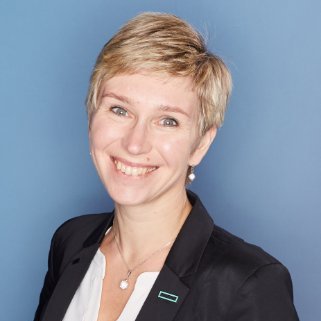
Natalia Vassilieva is a Research Manager at Hewlett Packard Labs
In this video from the HPC User Forum in Milwaukee, Natalia Vassilieva from HP Labs presents: Characterization and Benchmarking of Deep Learning.
“Deep Learning is a key enabling technology behind the recent revival of Artificial Intelligence. It is already adopted by a handful of tech giants and industry leaders for computer vision, speech recognition and other tasks. There is a lot of interest in this technology from many other players across industries. However, many of those players do not have the expertise and resources of tech giants to make informed decisions on optimal hardware and software configurations to run deep learning workloads efficiently. It is a common wisdom today, that to start a deep learning exploration one needs a GPU-based system and one of the existing open source deep learning frameworks. But which GPU box to choose? How many of them to put in a cluster? Which framework to pick? If a particular GPU system is enough for one deep learning workload, will it be enough for a different one?”
Answers to these questions are not obvious. That’s why we have decided to create a “book of recipes” for deep learning workloads. Our Deep Learning Cookbook is based on a massive collection of performance results for various deep learning workloads on different hardware/software stacks, and analytical performance models. This combination enables us to estimate the performance of a given workload and to recommend an optimal hardware/software stack for that workload. Additionally, we use the Cookbook to detect bottlenecks in existing hardware and to guide the design of future systems for artificial intelligence and deep learning.
Natalia Vassilieva is a Sr. Research Manager at Hewlett Packard Labs, Hewlett Packard Enterprise. Her focus is machine learning and artificial intelligence, analytics, and application-driven software-hardware optimization and co-design. At HPE she currently leads research teams developing algorithms and applications for the era of Memory Driven Computing – a new concept of computer architecture by Hewlett Packard Enterprise. In particular, her teams currently focus on fast Monte Carlo simulations and performance characterization and modeling of deep learning workloads. Natalia joined HPE at 2007 and served as the head of HP Labs Russia from 2011 till 2015. Prior to joining HPE, she was an Associate Professor at St. Petersburg State University and worked as a software engineer for different IT companies. Natalia holds PhD in computer science from St. Petersburg State University.




